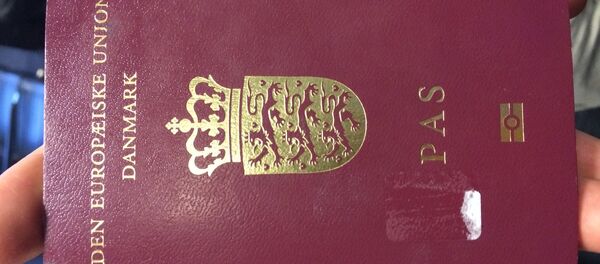Danish-Syrian Conservative MP Naser Khader is by his own admission ready to introduce a corresponding bill to oblige the Danish state to present a system for probing potential citizen's personal beliefs. Additionally, the applicants are expected to declare their loyalty to the Danish constitution and society values in written form. According to Khader, this measure would stop people, who "do not care for" Danish values from ultimately becoming Danes. Additionally, this measure is expected to deny citizenship to people who "oppose and undermine democracy."
"I want to be able to sit down and ask some of those who have applied for Danish citizenship: Why do you want it? What is your opinion of our democracy, traditions of freedom, gender equality, homosexuality and so on," Khader told Danish newspaper Politiken.
In Denmark, Khader has a formidable reputation of being one of the most stalwart immigration critics, at the same time being a leading proponent of peaceful co-existence of democracy and Islam. Although Khader himself did not lay out any concrete model for the proposed "screening" process, the envisaged a scenario, in which the Danish Security and Intelligence Service (PET) could flag would-be-citizens with extremist beliefs. In some cases, the people in question could be brought in for interrogation by parliament's Naturalization Committee.
😎😎😎 Hvem har de fedeste shades? Retweet for @naserkhaderdk — favourite for @BrianMikkelsenC #dkpol 😎😎😎 pic.twitter.com/99RuiNKrb5
— Konservative (@KonservativeDK) August 26, 2016
"You get a much more reliable picture of the applicant by seeing the person in the flesh," Khader explained Politiken.
Jan Jørgensen of the ruling Liberal Party told Politiken that he could perfectly understand the motivation behind the proposal but had nevertheless doubts about its effectiveness. The Danish People's Party's citizenship spokesperson Christian Langballe called Khader's idea "excellent," whereas Astrid Krag, her equivalent of the Social Democratic party, refrained from passing judgment until she first sees a ready model of how this would be put into practice. Nevertheless, she said that the proposal must be looked upon "with an open mind."
"This may develop into a culture that approves or denies citizenship based on political considerations, and I am against it. Besides, we should not become case administrators," Egelund said, citing the principle of the separation of powers.
At present, applicants for Danish nationality must have lived in Denmark for nine years and have a permanent residence permit. Additionally, one must also have been self-supportive for at least 4 years and 6 months out of the last 5 years before applying. Finally, one must as passing a citizenship test to prove one has sufficient knowledge of Danish society, culture and history.





